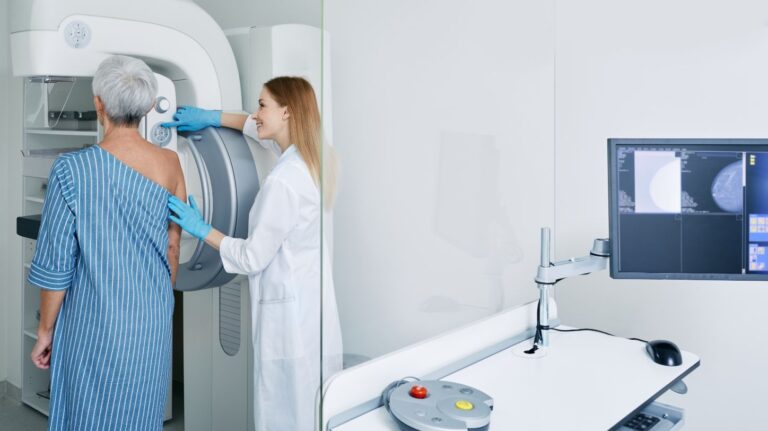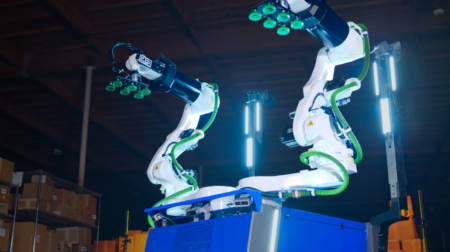Nearly 700,000 women across the UK will participate in a pioneering trial to explore the use of advanced artificial intelligence (AI) tools in early breast cancer detection, the Department of Health and Social Care (DHSC).
The trial aims to enhance breast cancer screening with the latest AI technologies, designed to assist radiologists in identifying potential cancerous changes in breast tissue more quickly and accurately.
The trial, known as the EDITH trial (Early Detection using Information Technology in Health), will be conducted across 30 testing sites nationwide.
Women already scheduled for routine mammograms through the NHS will be invited to take part. The AI technology is intended to streamline the screening process, enabling a single specialist to complete a mammogram that would typically require two radiologists.
This initiative could help alleviate pressure on radiologists, enabling them to see more patients and reduce waiting lists.
The trial is backed by £11 million in government funding through the National Institute for Health and Care Research (NIHR). If successful, the AI-powered approach could lead to more efficient and timely diagnoses, helping to save lives and address the increasing demand for cancer care.
Breast cancer is the most common cancer in women, with around 55,000 cases diagnosed annually in the UK. Currently, women aged 50 to 71 are invited to undergo screening every three years, helping detect early-stage breast cancer and preventing an estimated 1,300 deaths each year. However, experts are seeking ways to improve early detection and reduce delays in diagnosis, which is essential for better treatment outcomes.
The announcement of the EDITH trial coincides with the launch of a call for evidence aimed at shaping a new national cancer plan. The plan, which will be unveiled later this year, seeks to improve cancer survival rates and patient care across the UK.
As part of this initiative, the government is focused on harnessing cutting-edge technologies to fight cancer, including AI tools like those being tested in the EDITH trial.
Wes Streeting, Secretary of State for Health and Social Care, highlighted the urgency of improving cancer survival rates in the UK, noting that the country lags behind some of its peers in cancer outcomes. As a cancer survivor himself, Streeting stressed the need for immediate action to improve patient care and reduce waiting times.
Professor Lucy Chappell, Chief Scientific Adviser at DHSC, praised the EDITH trial as a potential breakthrough in early breast cancer detection, saying it could lead to faster, more accurate diagnoses and ultimately save lives.
The national cancer plan will also address rare cancers, including those affecting children and young people, and include measures to improve detection, treatment, and research for these types of cancer.
To support this effort, the government has re-launched the Children and Young People’s Cancer Taskforce, which will work to improve cancer care for this demographic.
In addition to the national cancer plan, the UK is launching the UK Collaborative for Cancer Clinical Research, a new initiative aimed at coordinating cancer research and maximizing investment opportunities in clinical trials and innovations.
The government’s ongoing efforts to tackle cancer are part of its broader strategy to improve the NHS, including the 10 Year Health Plan, which focuses on modernising the healthcare system by integrating advanced technologies and reducing waiting times for patients.
The NHS has already seen significant progress in early cancer detection, with an increasing number of cancers being diagnosed at an earlier, more treatable stage. The new national cancer plan, alongside the EDITH trial, is expected to further accelerate these advancements, ensuring that the UK remains a leader in cancer care and treatment.
This initiative is part of the broader AI Opportunities Action Plan, which aims to position the UK as a global leader in AI innovation and public services, attracting investment to drive forward technological advancements in healthcare.
Join more than 11,000 industry leaders at Robotics and Automation Exhibition on 25-26 March 2025, at the NEC Birmingham to explore cutting-edge technologies, connect with peers and discover the latest innovations shaping the future of warehousing, manufacturing, engineering and logistics. Register for free now to secure your place at this premier event!








